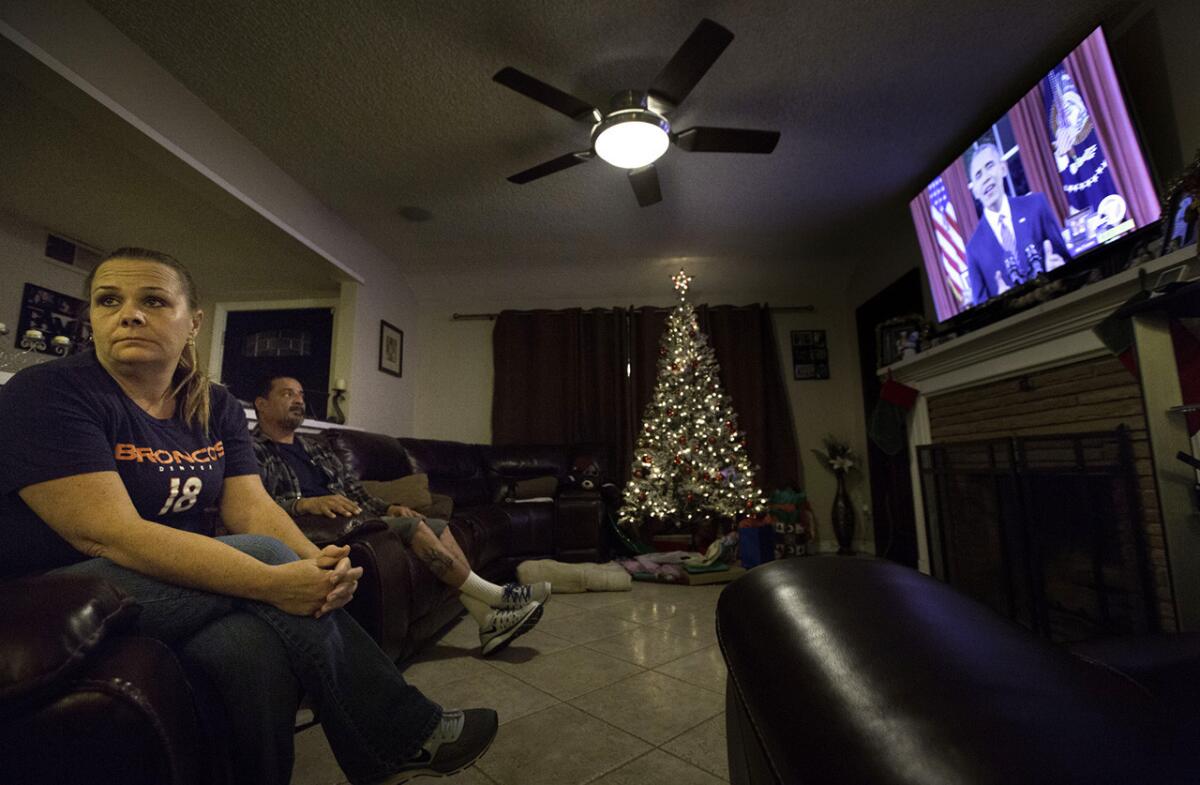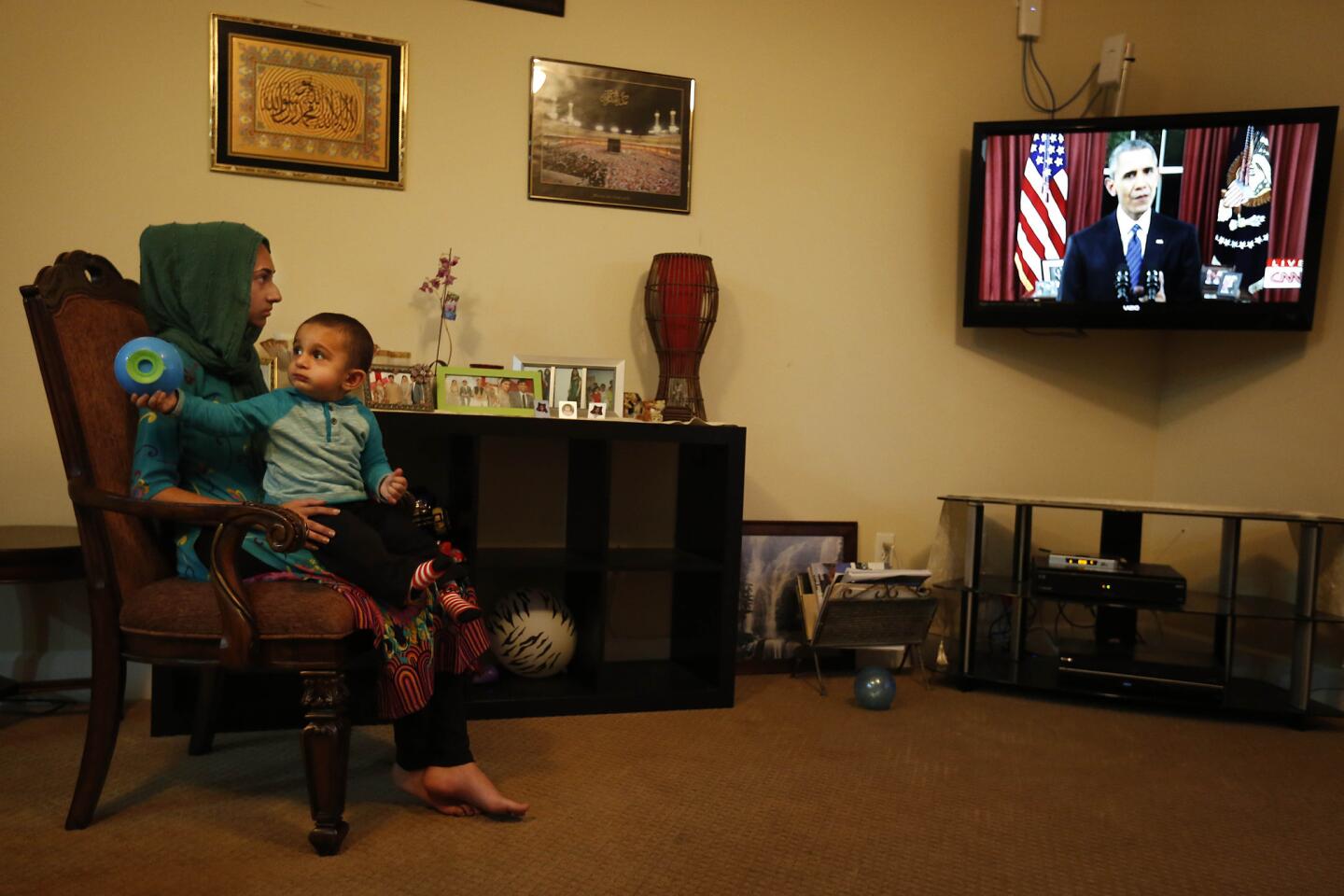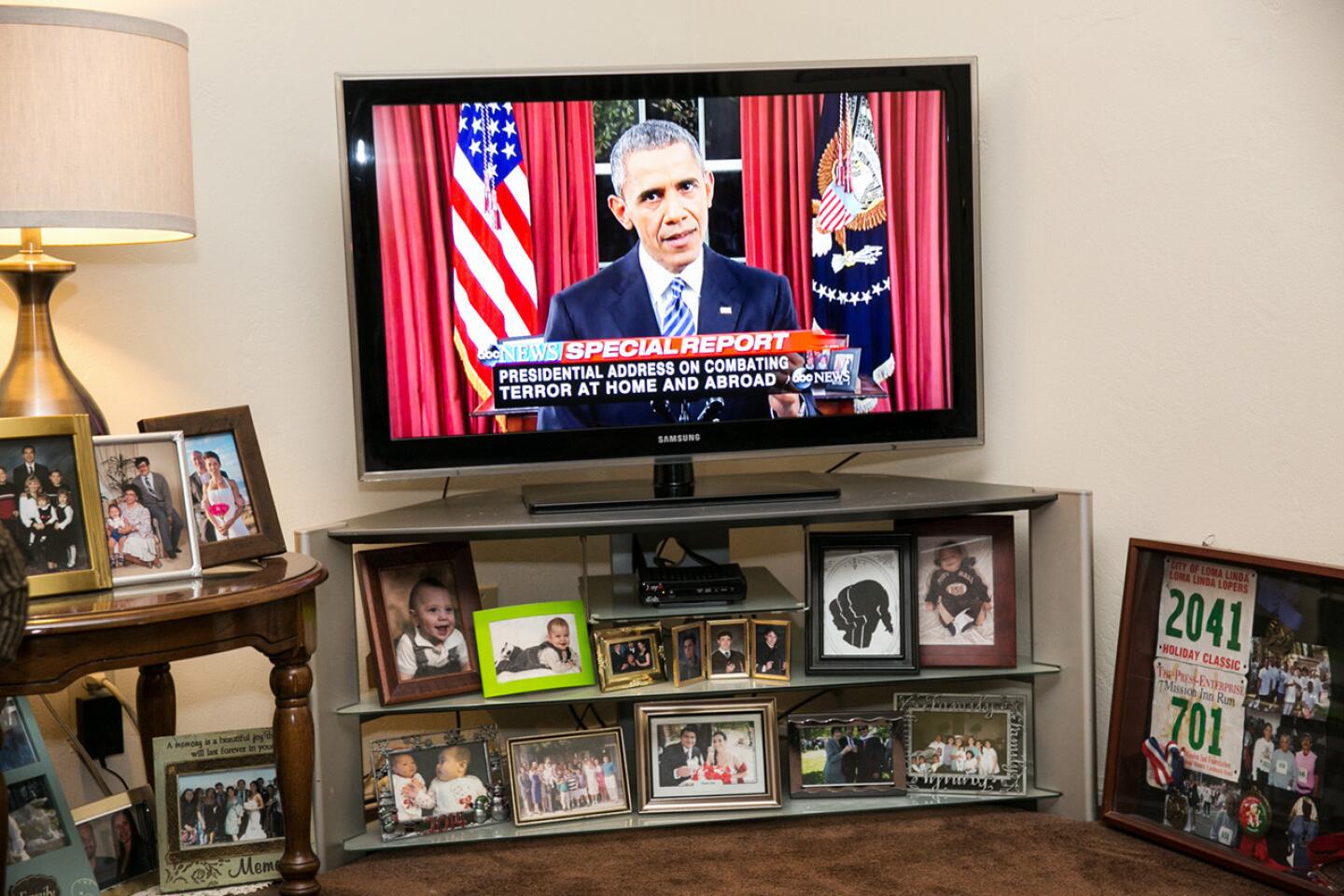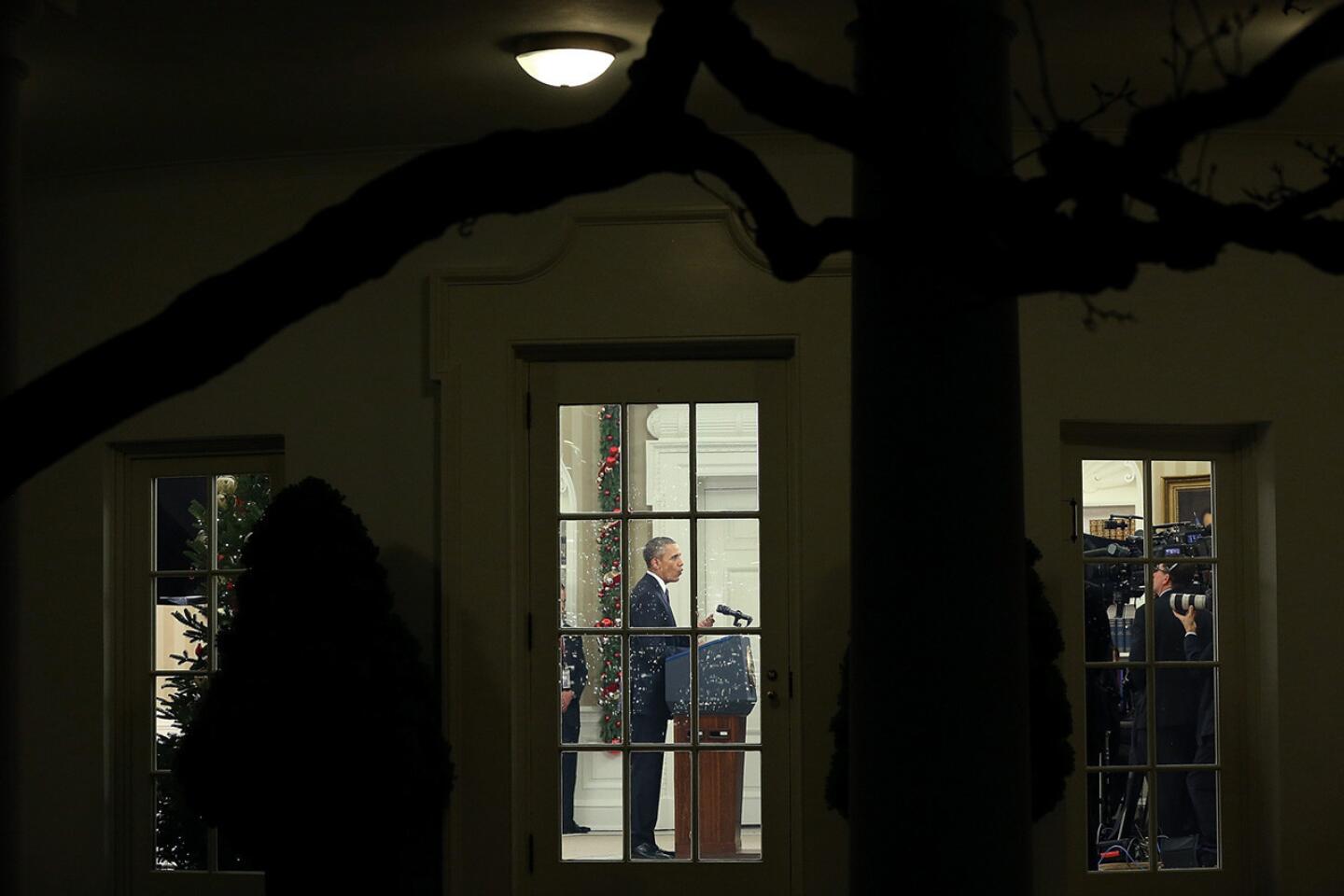Obama’s speech: Viewers are divided over the approach to fight terrorism

Robert Garcia and Trish Hughes have been residents of San Bernardino for 16 years. In the frontyard of their home, an American flag flies at half-staff.
Wednesday’s tragedy was fresh in their minds as President Obama spoke Sunday night. The married couple, both 44, watched and listened from their living room.
They could not be further apart when it comes to their views of Obama. Hughes, a Democrat, is a self-proclaimed fan of the president. Garcia, a Republican, not so much.
FULL COVERAGE: San Bernardino shooting | Live updates
“I liked it a lot,” Hughes said when Obama finished his speech. “The president did not pat us on the head and say ‘Things will be all right.’ He’s got a strategy.”
But Garcia thought Obama’s plan to combat terrorism didn’t go far enough.
“Unfortunately, we may need some troops on the ground,” he said. “And that’s not an easy thing for me to say. I have a 25-year-old son in the Navy.”
San Bernardino is now the site of the deadliest terrorist attack on U.S. soil since 9/11. Residents, such as Garcia and Hughes, say their city has been traumatized by the attack that left 14 dead and turned neighborhoods into a bullet-riddled war zone.
These somber facts are forcing residents of the ethnically diverse, working-class city of 209,000 people, located 60 miles east of Los Angeles, to grapple with the same questions that have bedeviled the president and lawmakers alike.
Should the United States take a more active role fighting the Islamic State? How should religious extremism — abroad and at home — be fought? And could more rigorous gun-control legislation have prevented Wednesday’s tragedy?
Federal authorities suspect that Syed Rizwan Farook and Tashfeen Malik’s act of terrorism was inspired by the Islamic State. Investigators are trying to determine whether the couple were self-radicalized or belonged to a network.
In another part of San Bernardino, Barbara Tovar, 67, was glad the president reiterated his commitment not to put troops on the ground in Syria to fight ISIS.
Tovar’s husband is in the Army, and a grandson is in the Marines. She doesn’t want them to be put in harm’s way.
Wednesday’s tragedy struck close to home for Tovar’s mother, Helen Medina, when her house was struck by bullets as police pursued Farook and Malik. The blinds in her one-story home shook. Petrified, Medina threw herself on the hallway floor.
“I didn’t dare look outside,” Medina, 87, said. “I thought I was going to die.”
Sitting amid the photographs of children and grandchildren, amid red Christmas bells and a cross in the kitchen, Tovar listened as her mother and grandson responded to the president’s words.
“Congress should act to make sure no one on a No Fly List is able to buy a gun,” Obama said.
“That’s what we were talking about,” Jonathan Tovar, 20, said.
“Exactly,” replied Tovar. “That’s something that clearly needs to be done.”
“We can’t forget that this isn’t us against Muslims,” Jonathan Tovar added. “We don’t want to abandon our fellow man. We can’t forget that.”
In nearby Chino, Mohammed Zafarullah, imam of the Bait ul Hameed Mosque, sat in his living room with his wife and daughters. He usually leads the 5 p.m. prayer, but not today. The president’s speech was more important.
When the president concluded his address, Zafarullah expressed his appreciation for what Obama said. “Whatever the government thinks about the protection of the country, that is their right and they have to do it,” he said.
Throughout the week, Zafarullah has been following the news about Farook and Malik and talking about it with members of the mosque. Even though the mosque hasn’t received any threats in the aftermath of the attack, Zafarullah is accustomed to hearing anti-Islamic sentiment.
He knows how important it is for the security of his community that he maintain a positive relationship with law enforcement and that authorities know that their mosque is peaceful.
Nilofar Shabana, Zafarullah’s wife, supports Obama’s actions to get rid of ISIS, she said, and Zafarullah understands his role as well, as an imam, to report any signs of extremism. “We have to cooperate, we have to help [Obama].... It is our duty to put a finger on them,” he said.
“Peace is very important,” he said. “We don’t like that terrorists enter into this country.”
On that account, Robert Garcia agreed. “I think it should be harder for them [extremists] to get into this country,” he said.
But whether the president was able to allay the fear that has beset this community since Wednesday, Garcia was doubtful.
“I don’t think the president made that much of a difference when it comes to making people feel less anxious,” he said.
But Hughes didn’t believe it was fair to suggest that one person — even the president of the United States — would be able to “quell our anxiety.”
For some residents, though, the president’s address didn’t come in time.
Alberto Jimenez, 78, who considers himself an Obama supporter, said addressing the nation four days after the assault was too late.
His wife, Louise, said she is angry with the president.
“He needs to get more serious,” she said. “Every one of us here is a victim. Every one of us knew someone who knew someone who was killed. The people of San Bernardino are good people, and we are afraid.”
Times staff writer Alan Zarembo contributed to this report.
MORE ON SAN BERNARDINO
Brown calls for stronger gun laws in wake of San Bernardino attack
FBI raids home of San Bernardino shooter’s friend, taking items in terrorist probe
Obama seeks to calm Americans on terror threat, but speech underscores challenges
More to Read
Sign up for Essential California
The most important California stories and recommendations in your inbox every morning.
You may occasionally receive promotional content from the Los Angeles Times.


















